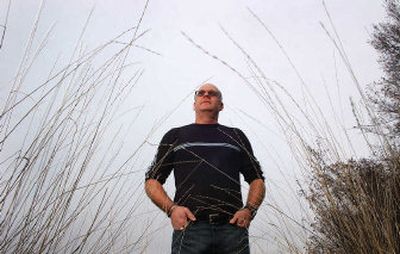Native intuition

Mother Nature is getting a new Inland Northwest ally: a Spokane-based seed company specializing in sometimes finicky – but crucial – native grasses, plants and wildflowers.
Clearwater Seed sank roots about a month ago in the Spokane Intercollegiate Research and Technology Institute building.
The company cultivates and sells seeds to restore large-scale landscapes scarred by wildfire, logging, mining and other widespread disturbances, said company founder and CEO Mark Mustoe.
Partners in the venture include three families with years of experience in the region growing grasses and native plants. Mustoe currently is the company’s only employee.
Clearwater Seed targets bulk purchases by federal and state agencies, like the Bureau of Land Management, U.S. Forest Service, and state parks and wildlife departments, Mustoe said. Customers can buy one type of seed or a custom mix for a specific site.
Some Clearwater seeds sell for as low as 90 cents a pound while others, like hand-collected needle-and-thread grass, are priced as high as $34 a pound. Some seeds are so tiny it takes a million to make a pound.
Some fields are already under cultivation, with more to be planted this spring, he said.
“We’ll have a very diverse product line of cool season and warm season native grasses, as well as flowers and forb seeds,” Mustoe said, referring to broadleaf plants like arrowleaf balsamroot and lupine.
Over the next two years, Mustoe expects 60 percent of the company’s seed to be harvested from Clearwater’s fields, most of which are in Idaho and the rest in Washington. Remaining inventory will come from a consortium of Western growers.
Mustoe said growing numbers of commercial property managers and homeowners are turning to natural vegetation.
“There is a shift towards native (plants) for two reasons: maintenance and water preservation. It’s been catching on for the last 10 years, particularly in more arid areas that require more water to grow (traditional) turf grasses,” he said. “Now, you see golf courses planting natives in their rough areas. And homeowners will include transition areas planted in native grasses and flowers. I see it more and more all the time.”
Nurturing indigenous plants is critical to the continuation of authentic Pacific Northwest scenery and habitat for birds and mammals, he added. “It’s important economically — and socially. It’s an important aspect of where we live and our future,” Mustoe said.